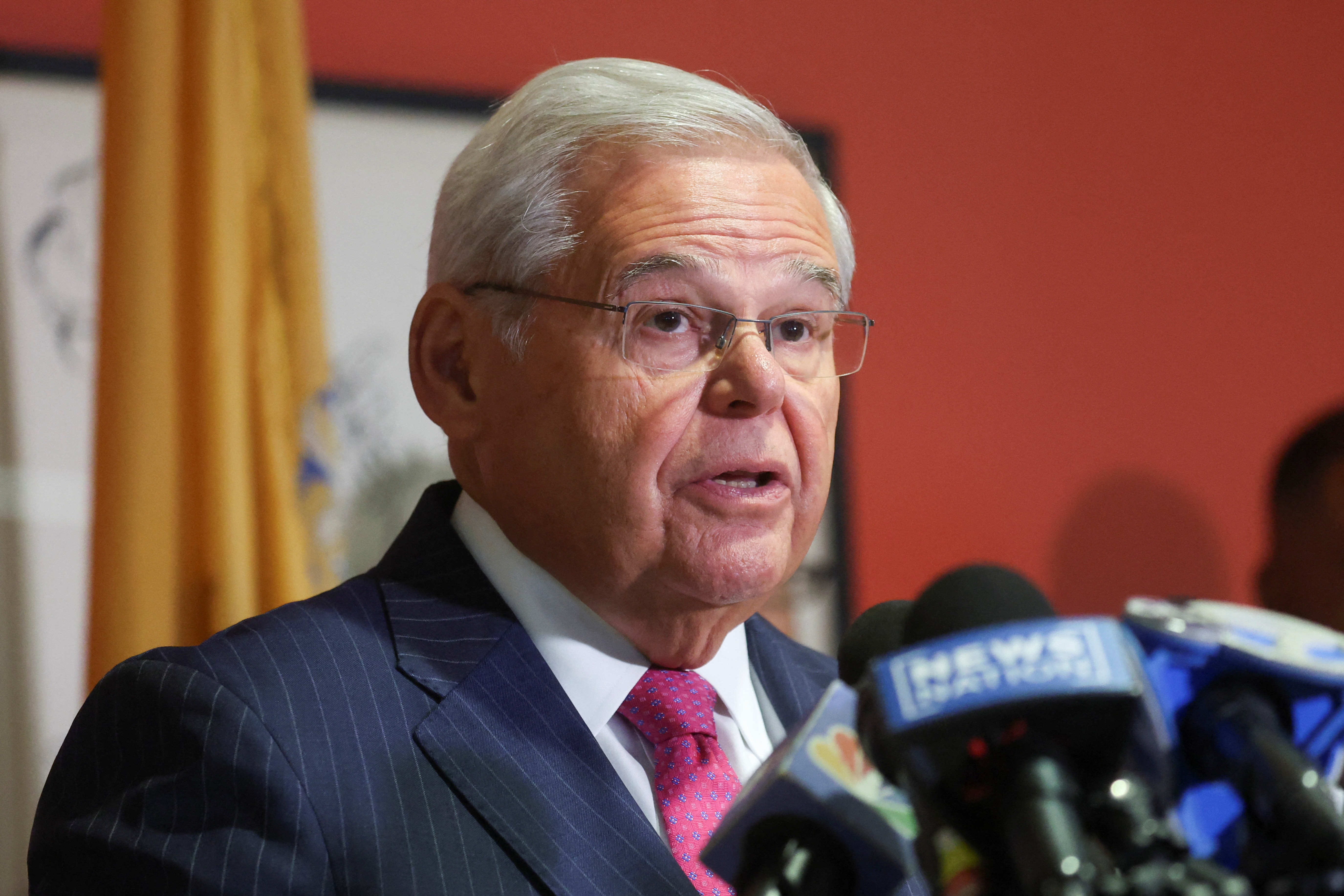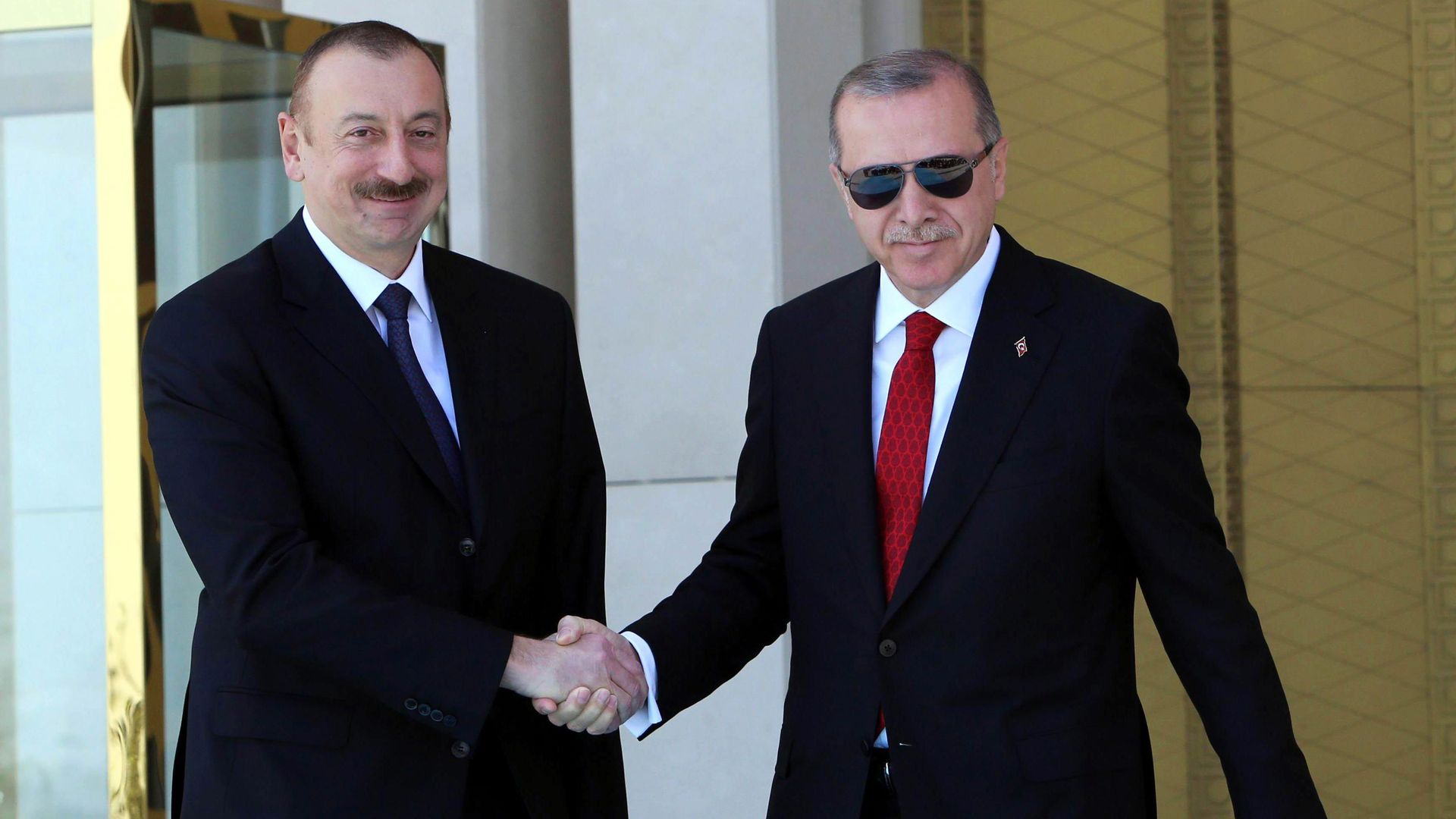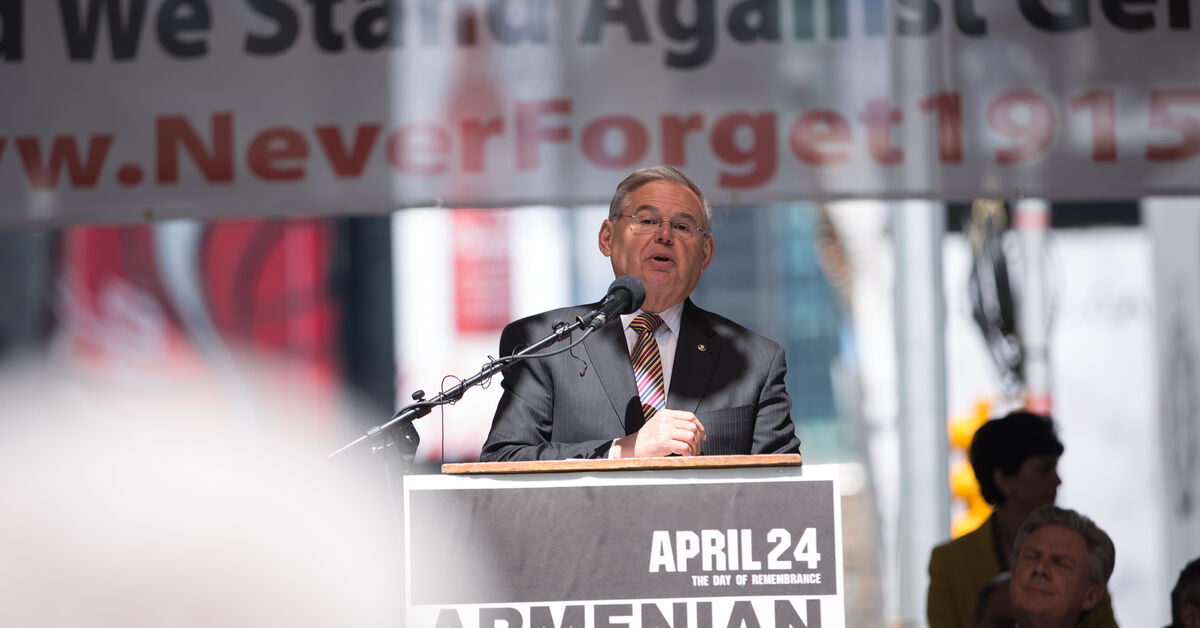
After decades of wars and tense stalemates, almost no one saw it coming: Azerbaijan seized Nagorno-Karabakh from Armenian control seemingly overnight.
The recent capitulation of Nagorno-Karabakh’s ethnic-Armenian leadership to Azerbaijani authorities raises the likelihood of domestic instability within Armenia and renewed military conflict between Yerevan and Baku. Armenian President Nikol Pashinyan’s profoundly unpopular decision not to intervene in Nagorno-Karabakh will trigger sustained unrest and may weaken his hold on power. Simultaneously, emboldened by a quick and decisive military victory, Baku may attempt to extract additional concessions from Yerevan through direct military confrontation.
Nagorno-Karabakh authorities’ capitulation to Baku on Sept. 20 likely marks the end of the ethnically Armenian region’s quest for independence from Azerbaijan. Military hostilities resumed between Baku and Stepanakert (Xankəndi) on Sept. 19; however, unlike previous flare-ups, Yerevan declined to intervene. Subsequently, following rapid Azerbaijani advances, Stepanakert and Baku announced a ceasefire entailing complete disarmament and disbandment of militarized Armenian elements in Nagorno-Karabakh. Further talks are underway to determine a path forward for integration into Azerbaijan. Nagorno-Karabakh’s population remains deeply distrustful of Azerbaijani authorities, claiming that Baku intends to ethnically cleanse the area, and many residents are fleeing to Armenia. Large-scale population transfer to Armenia is likely in the coming weeks.
Pashinyan’s decision not to intervene has been met with fury from many parts of Armenian society. Nagorno-Karabakh’s independence is enshrined in the Armenian constitution, and many Armenians feel that ensuring Nagorno-Karabakh’s separation from Azerbaijan is an integral role of the Armenian state. Demonstrations calling for Pashinyan to resign will likely grow as Stepanakert begins its integration with Baku and will intensify in the event of large refugee flows from Nagorno-Karabakh into Armenia. Should allegations of atrocities committed by Azerbaijani forces against the residents of Nagorno-Karabakh emerge or reports that Azerbaijan has crossed Armenia’s international border, demonstrations across Armenia will drastically escalate. Furthermore, given the overwhelming unpopularity of Pashinyan’s decision and the Armenian government’s alleged failure to enforce its constitutional responsibility to defend Nagorno-Karabakh, it is possible that mass protests may transform into an uprising aimed at toppling the Pashinyan government; similarly, opposition parties have formed a committee to design an impeachment plan. Within this context, an attempted military coup cannot be ruled out in the coming weeks.
The continued threat of Azerbaijani military action against sovereign Armenian territory is an additional destabilizing factor. At the very least, Azerbaijan may use the threat of force to coerce further concessions from Yerevan. Azerbaijani authorities have for years demanded Armenia open transport links to the Azerbaijani exclave of Nakhchivan in line with the 2020 Nagorno-Karabakh ceasefire agreement. Azerbaijani President Ilham Aliyev and members of his government have also publicly discussed the establishment of the “Zangezur Corridor,” a proposed Azerbaijani-controlled strip of land to be seized from Armenia along the Armenia-Iran border that would connect contiguous Azerbaijan with Nakhchivan. Baku’s military superiority over Yerevan as demonstrated in the 2020 Nagorno-Karabakh war, Turkiye’s continued strong military and political support for Azerbaijan, and Russian peacekeepers’ unwillingness to intervene in the September military operations or recent Azerbaijani activities targeting Armenia proper, likely give Azerbaijani authorities the perception that they are in a dominant position against an isolated Armenia. Baku, therefore, has significant incentives to press its advantage via renewed interstate military operations.
The Armenia-Azerbaijan conflict is entering a volatile new stage likely characterized by deep Armenian vulnerability. Armenian instability, particularly any potential uprising, will likely encourage more assertive Azerbaijani military actions against Armenia, promoting further Armenian unrest. The primary factor dictating the conflict’s path forward will be Pashinyan’s ability to weather an intense political storm: should he effectively contain the institutional blowback to Nagorno-Karabakh’s collapse as an ethnically Armenian entity and prevent unrest from spiraling into serious instability, he may be able to successfully dissuade Azerbaijan from a direct military confrontation. However, it is far from certain that Pashinyan will be able to maintain control. Should impeachment or a military coup topple Pashinyan, Armenia’s new leaders will be under intense pressure to attempt to restore Stepanakert’s autonomy through military means, likely resulting in Azerbaijan extracting harsh political concessions regarding access to Nakhchivan. The development of Armenia’s public response to Nagorno-Karabakh’s defeat and Azerbaijani military movements near the Armenian border will be crucial indicators in the coming weeks of whether the conflict will escalate; any direct confrontation will likely result in further Armenian concessions. All outcomes entail political, economic, and military uncertainty for Armenia in the coming months.

U.S. Senator Robert Menendez (D-NJ) delivers remarks, after he and his wife Nadine Menendez were indicted on bribery offenses in connection with their corrupt relationship with three New Jersey businessmen, in Union City, New Jersey, U.S., September 25, 2023. REUTERS/Mike Segar Acquire Licensing Rights
WASHINGTON, Sept 26 (Reuters) – Charges that Senator Bob Menendez accepted bribes in exchange for wielding his influence to aid the Egyptian government prompted calls in the U.S. Congress on Tuesday for the Biden administration to rethink $235 million in military aid to Cairo.
Democratic Senator Chris Murphy, who chairs the Senate Foreign Relations Committee’s Middle East subcommittee, said he hoped the committee would investigate the allegations and Egypt’s involvement.
U.S. prosecutors announced an indictment on Friday accusing Menendez of accepting gold bars and hundreds of thousands of dollars in cash in exchange for wielding his influence to aid the Egyptian government.
“I would hope that our committee would consider using any ability it has to put a pause on those dollars, pending an inquiry into what Egypt was doing,” Murphy told reporters.
“I have not talked to colleagues about this yet, but obviously this raises pretty serious questions about Egypt, Egypt’s conduct,” he said.
The indictment against Menendez also says he had close relationships with members of Egypt’s intelligence services and held meetings to discuss U.S. military aid.
Menendez has repeatedly denied wrongdoing. He has stepped down temporarily from his role as chairman of the powerful Senate Foreign Relations Committee. Senate Democratic rules require a member charged with a felony to give up any leadership position.
President Joe Biden’s administration decided this month to allow much of U.S. foreign military aid to Egypt to go ahead, saying the country was vital to national security interests despite what critics have said about human rights abuses.
Murphy was among lawmakers who criticized the decision.
Representative Don Beyer, a Democratic House of Representative member and co-founder of the congressional Egypt Human Rights Caucus, said Egypt “is conducting an espionage operation within the U.S. Senate” and Washington should respond.
“I think that calls for a much stronger response from the Biden administration, and the straightforward one is to withhold (the military funds),” Beyer said on CNN.
Reporting by Patricia Zengerle; Editing by Tom Hogue
Our Standards: The Thomson Reuters Trust Principles.
Patricia Zengerle has reported from more than 20 countries, including Afghanistan, Iraq, Pakistan, Saudi Arabia and China. An award-winning Washington-based national security and foreign policy reporter who also has worked as an editor, Patricia has appeared on NPR, C-Span and other programs, spoken at the National Press Club and attended the Hoover Institution Media Roundtable. She is a recipient of the Edwin M. Hood Award for Diplomatic Correspondence.

Aliyev (L) with Erdoğan in 2018. Photo: Adem Altan/AFP via Getty
Turkey and Israel both played key roles in Azerbaijan’s recent victory over Armenia in Nagorno-Karabakh. Now, several weeks after the ceasefire, Azeri President Ilham Aliyev is trying to mend relations between his two allies, senior Israeli officials tell me.
The big picture: Drones and other weapons systems from both Turkey and Israel helped Azerbaijan gain military superiority over Armenia. But relations between Turkey and Israel have been frozen for most of the past decade.
Driving the news: Aliyev raised the Israel-Turkey tensions in a recent call with Turkish President Recep Tayyip Erdoğan, Israeli officials said.
What they’re saying: “Aliyev and his senior advisers have communicated that they want to see both of their good friends — Turkey and Israel — getting back to normal relations and they are willing to help to make that happen,” an Israeli official told me.
Flashback: Israeli-Turkish relations have been deteriorating since the 2008 Gaza war, and contacts were frozen almost entirely after the 2010 “Gaza Flotilla incident,” in which Israeli commandos attacked activists who were attempting to breach an Israeli blockade to deliver aid to Gaza.
The latest: There have been several signs in recent months that Turkey wants to re-engage with Israel, in particular over its dispute with Greece and Cyprus over natural gas exploration in the eastern Mediterranean.

The announcement of federal corruption charges against Sen. Bob Menendez, D-N.J., on Friday leading up to him stepping down as the chair of the Senate Foreign Relations Committee (SFRC), was met by snarky reactions in Turkish news outlets and social media, a response to the lawmaker’s strong and persistent criticism of Turkey.
Menendez, a well-known foreign policy figure and established power broker in the Senate, allegedly participated in a bribery scheme involving his wife, Nadine, and three businesspeople in his state of New Jersey, federal prosecutors announced on Friday.
The US attorney for the Southern District of New York, Damian Williams, told reporters that the senator allegedly “used his power and influence, including his leadership role on the Senate Foreign Relations Committee, to benefit the government of Egypt in various ways.”
Later the same day, Senate majority leader Chuck Schumer announced that Menendez would temporarily step down as head of the Senate Foreign Relations Committee.
Turkish reactions
Turkish media outlets noted Menendez’s differences with Turkey in their coverage on Friday, including his support for Greece and Armenia. Turkey’s official Anadolu Agency accused the senator of being tied to the “Greek and Armenian lobbies.”
“Menendez is known for his anti-Turkey stance and for his close ties with Greek and Armenian lobbies,” claimed the outlet.
Turkey’s public broadcaster TRT ran a headline reading “Anti-Turkey US senator accused of bribery.”
Turkish journalist Ragip Soylu took it a step further, referring to Menendez as an “Armenian and Greek lobbyist” in a tweet.
Menendez and Turkey
The reactions are unsurprising given Menendez’s history with Turkey. The embattled senator has long been a vocal supporter of Armenian issue, urging the US government to recognize the Armenian genocide, which Washington did in 2021. Turkey disputes that the events constitute a genocide, and criticized US President Joe Biden for his decision.
Relatedly, Menendez, 69, is critical of Turkey’s ally Azerbaijan in the ongoing conflict with Armenia over the Nagorno-Karabakh region.
He is vocal in defending Greece in its disputes with Turkey including the maritime border and has often lashed out at Ankara’s military presence in Cyprus.
“If standing up to human rights abuses makes me an enemy of Erdogan — if calling out Turkey for arming Azerbaijan and enabling the massacre of innocent Armenian civilians makes me an enemy of Erdogan — if demanding Turkey recognize Greek and Cypriot sovereignty makes me an enemy of [Turkish President Recep Tayyip] Erdogan — then it is a badge I will wear with honor,” said Menendez in a December statement.
Menendez has also placed a hold on the sale of US F-16 fighter jets to Turkey, something that has angered the policy and security establishment in Turkey.
Turkey had requested in October 2021 to buy $20 billion worth of F-16 fighter jets and nearly 80 modernization kits. High-ranking members of Congress including Menendez have objected to this sale, but could soften their position if Ankara ratifies Sweden’s bid, improves relations with Greece and maintains distance from Russia.
In July, Menendez said he was in talks with the Biden administration about the issue, calling on the administration to rein in Turkey’s “aggression.”
A hold is an informal practice whereby a senator can delay action on a congressional matter. Under the US Constitution, Congress has the right to review foreign arms sales.
“The biggest obstacle to the sale of F-16s to Turkey was Menendez,” Asli Aydintasbas, a visiting fellow at Brookings, tweeted on Friday, adding that Turkey is following the indictment “very closely.”
“The US government needs Senate approval for the sale. The Biden administration has long struggled to convince Menendez,” she added.
Some other observers agree that the Menendez indictment will be welcome news in Ankara due to the F-16 issue.
“I am sure the Turkish establishment will be pleased with the news of Senator Menendez’s indictment for taking bribes from Egypt,” tweeted Brooklyn College professor Louis Fishman on Friday. “He is one of Turkey’s most avid major adversaries in Washington, blocking the F-16 sales. This will make Biden’s work easier.”
Differences between Erdogan and Biden, however, could still delay the purchase. The US president has yet to invite his Turkish counterpart to the White House, and the two did not meet while in New York this week for the United Nations General Assembly meetings.
Erdogan’s delay in ratifying Sweden’s NATO bid, new US sanctions on Turkish firms allegedly doing business with Russia, and tension with US allies in Syria have all created a rift between Washington and Ankara, making the F-16 sale less about Menendez and more about the bilateral relationship.